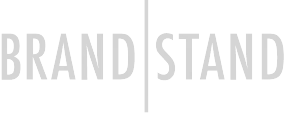By Steve Jarratt, Technology Writer

While the coronavirus pandemic is far from over, the hospitality industry is adapting to a new normal, coaxing guests back with a range of campaigns and safety initiatives.
One of the key measures being taken worldwide is to promote the cleanliness and hygiene of each establishment. Once simply taken for granted, housekeeping protocols are now being promoted as a benefit, and where cleaning staff generally kept a low profile, hotels are keen to put on a conspicuous show of sanitation.
Clean and inspected
For example, Hilton Hotels is now operating under the banner of ‘CleanStay’, which includes a comprehensive list of safety measures and cleanliness guidelines. It includes a dedicated app to bypass the front desk; socially distanced seating in lobbies and restaurants; sanitizing stations throughout hotels; and CleanStay stickers to show which rooms have recently been cleaned and inspected. [1]
- The future of hotel room design
- Post-lockdown recovery strategies for hotels
- Clean hotel rooms in a coronavirus world
The Hilton Hotels group has partnered with Reckitt Benckiser in its use of recognized-brand cleaning products, and offers a service where guests can tailor housekeeping services to suit their own comfort level. It has also made sweeping changes to food preparation and delivery, with disposable, biodegradable tableware, and pre-plated alternatives to open breakfasts and buffets.
Other chains have instigated their own sanitization programs, such as the Wyndham Hotels and Resorts ‘Count On Us’ marketing campaign in the US and Canada. As well as enhanced social distancing measures, it promises frequent cleaning with hospital-grade Ecolab cleaning products, along with complimentary hand sanitizers in every room.
Many other similar initiatives exist, such as Best Western’s ‘We Care Clean’ programme, Hyatt’s ‘Global Care & Cleanliness Commitment’, Club Med’s ‘Safe Together’, and the ‘Radisson Hotels Safety Protocol’. [2]
Industrywide initiatives
The American Hotel & Lodging Association has also introduced the ‘Safe Stay Guest Checklist’ program, which sets post-pandemic safety standards for guests to consider, such as requesting contactless check-in and room service, and daily room cleaning. [3]
All of Marriott’s guests in the US are now obliged to wear face masks, in line with this checklist. But Marriott has also started using electrostatic sanitizers like those used on airlines, and is looking into UV sanitizers for extra safety. [4] [5] Other chains are also making a show of their efforts: Four Seasons has signed up Johns Hopkins Medicine International as a health and safety consultant, [6] while others have regular health screening for their staff and installed additional contactless systems. [7]

In an effort to encourage bookings, the US Travel Association – in a coalition with 75 travel companies, including several major hotel chains – has initiated a campaign dubbed ‘Let's Go There’. [8] The $10 million initiative involves online, radio and TV advertising, and provides a downloadable toolkit with logos, video, social media content, banner ads and other materials to help promote the idea of planning your next trip.
Alternate revenue streams
With holiday travelers still thin on the ground, many hotels are turning to other revenue streams to stay in business. Business events and co-working have proven beneficial, with many hotels marketing rooms as ‘day use offices’ and offering co-working space in foyers and other public areas. Many hotels around the world have launched branded campaigns to promote their services.
Staycations (or ‘coronacations’) are another vital source of income, as people look for a local hotel break as respite from being cooped up in the family home. This provides an opportunity for hotels, especially those in more secluded locations, and many are refocusing their marketing to zero in on the appeal of spas, swimming pools, luxury amenities and socially-distanced outdoor sports activities. [9]
Many regional areas have launched staycation campaigns, such as the one instigated by Los Angeles Tourism, encouraging locals to visit their own neighborhood. The ‘LA Love’ section of its website offers a range of deals for 100 local hotels, restaurants and attractions. [10] The organization estimates that if each employed LA resident spent three nights in a hotel, visited three restaurants and three attractions during their trip, the local economy would benefit to the tune of $1.4 billion and help to protect thousands of jobs. [11]
There is undoubtedly pent-up demand for breaks away from home, and with a suitable hygiene program in place, the right kind of offers and an appealing marketing message – hotels are adapting to the new normal and welcoming guests again.
Safety and durability are what make Brandstand products different. Find out more here.
Other posts you might like:
- The future of hotel room design
- Post-lockdown recovery strategies for hotels
- Clean hotel rooms in a coronavirus world
References:
[1] https://www.hilton.com/en/corporate/cleanstay/
[2] https://www.hotelnewsnow.com/Articles/302702/Hotels-enhance-cleaning-protocols-in-light-of-COVID-19
[3] https://www.ahla.com/press-release/hotel-industry-releases-top-5-requirements-travel-safely
[4] https://www.hospitalitynet.org/news/4099760.html
[5] https://www.cntraveler.com/story/marriott-hotels-new-cleaning-routine-involves-sanitizing-sprayers-and-uv-light
[6] https://press.fourseasons.com/news-releases/2020/lead-with-care-program/
[7] https://eu.usatoday.com/story/travel/hotels/2020/05/29/hotel-rooms-during-coronavirus-pandemic-how-know-if-theyre-clean/5275952002/
[8] https://www.hotelmanagement.net/operate/industry-orgs-partner-to-encourage-travel-planning
[9] https://www.hotelsmag.com/Industry/Blogs/Details/93263
[10] https://www.letsgothere.travel/about-campaign
[11] https://www.afar.com/magazine/los-angeles-launches-campaign-to-encourage-locals-to-staycation



